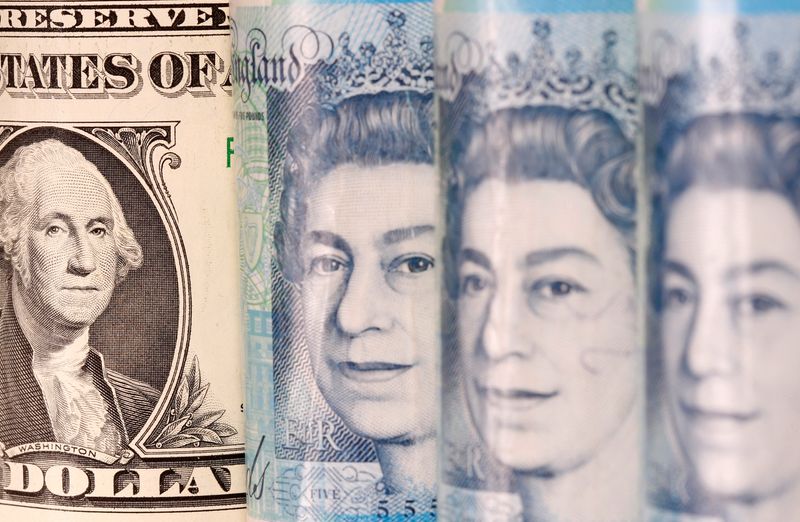By Joice Alves
LONDON (Reuters) -Sterling gave up some improvement against the dollar and the euro on Thursday after the Bank of England raised its key interest rate by less than the money market was predicting.
The BoE raised its benchmark rate by 50 basis points (bps) to 2.25% as it targets consumer inflation near 40-year highs, and vowed to "respond forcefully, as necessary" to rising prices, despite the British economy entering recession.
While economists polled by Reuters were expecting a 50 bps rise, the money market saw a strong possibility of 75 bps.
The pound eased back from earlier highs after the BoE's decision, trading up 0.4% on the day against the dollar at$1.13135, having briefly traded with a 0.85% gain.
Against the euro, sterling reversed earlier gains and fell, before flattening at 87.23 pence, after briefly rising to a one-week high of 86.95 pence before the decision.
"Clearly, a dovish surprise as markets were almost fully pricing in a 75 bps increase. However, the fact that three MPC members voted for 75 bps may be preventing a big dovish repricing in the pound curve and that may be one of the reasons why the pound has not dropped much after the announcement," Francesco Pesole, FX strategist at ING, said.
The BoE's Monetary Policy Committee (MPC) voted 5-4 to raise rates to 2.25%, with Deputy Governor Dave Ramsden and external MPC members Jonathan Haskel and Catherine Mann voting for an increase to 2.5%, while new MPC member Swati Dhingra wanted 2%.
This summer, rising interest rates have provided little support to sterling amid a gloomy outlook for Britain's economy and a cost of living crisis.
The pound has softened 16% against the dollar this year, slipping to a fresh 37-year low in early London trading.

The BoE estimates Britain's economy will shrink 0.1% in the third quarter, partly due to the extra public holiday for Queen Elizabeth's funeral. Combined with a second quarter fall in output this meets the definition of a technical recession.
"Since May it has been clear that BoE rate hikes are not having much of an impact in halting downside pressure on sterling with UK fundamentals undermined by slow growth, a huge current account deficit and recently by concerns over the fiscal outlook," Jane Foley, head of FX strategy at Rabobank in London, said.